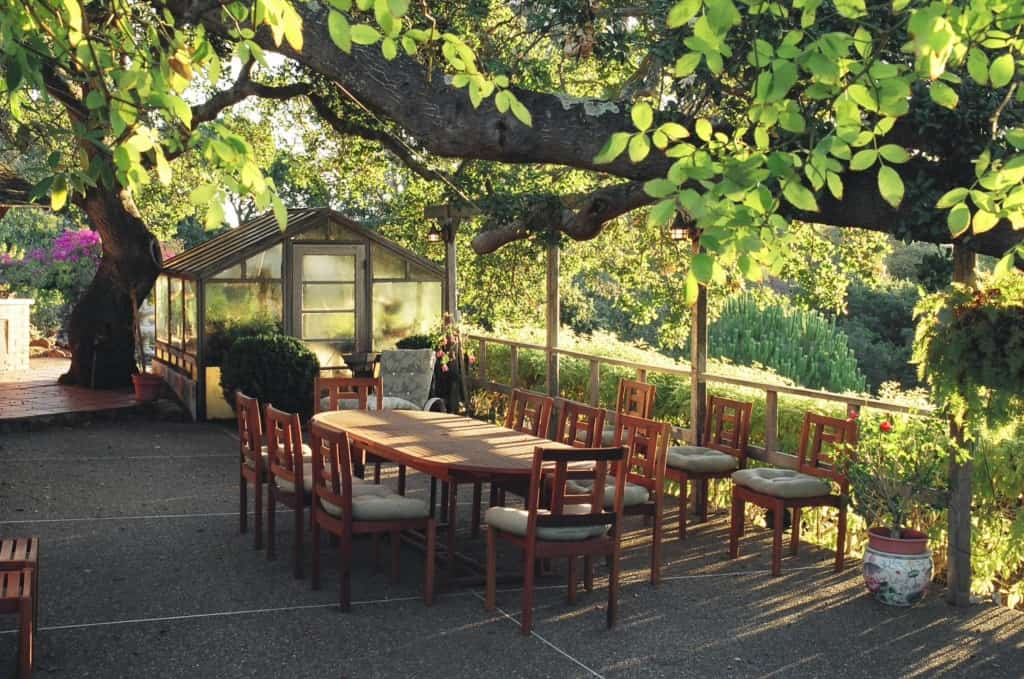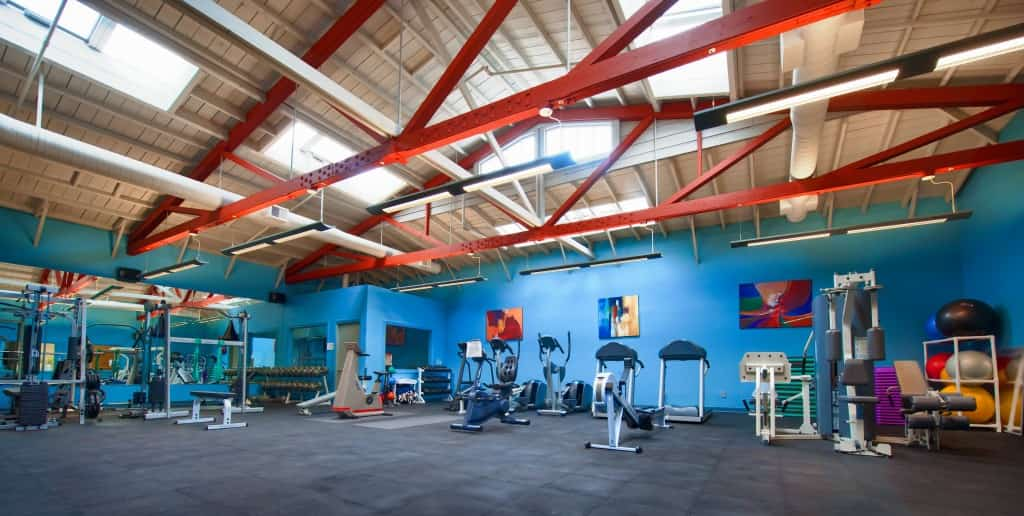Located in the serene hills of San Rafael, Bayside Marin is California’s premier rehabilitation center dedicated to the treatment of opioid addiction. Bayside Marin blends evidence-based treatments with alternative, holistic modalities to comprehensively treat all aspects of our client’s life.
Learn More About Opioid Addiction Treatment
Learn more about opioid addiction treatment at Bayside Marin Treatment Center in California
The abuse of substances is something that countless people struggle with throughout society today. The presence of an addiction to alcohol and/or drugs can quickly consume all aspects of the user’s life, negatively impacting both that individual as well as those around him or her. Opioids are one type of drug that can rapidly cause devastation in the lives of those who become trapped in the grips of its addictive properties. Heroin, morphine, and prescription painkillers are all various types of opioid substances that, when abused, produce mind and mood-altering effects by depressing the central nervous system. The result of this central nervous system depression is the onset of feelings of relaxation and euphoria, both of which become desirable to users, making them more susceptible to continue their use of these substances. This continued use can quickly turn into addiction and physical dependence, making it extremely difficult for individuals to put an end to their use of opioids.
At Bayside Marin Treatment Center in California, we recognize how difficult it can be to face each day plagued by the desire and compulsion to use opioids and have therefore created specialized, effective programming that is designed to meet the needs of individuals who are suffering from this form of chemical dependency concern. With treatment that is offered in a private, intimate setting overlooking Mount Tamalpais and the beautiful San Francisco Bay, clients who come to Bayside Marin can be assured that they will receive an unparalleled level of care.
How to Help a Loved One
Helping a loved one get treatment for opioid addiction
Learning that you have a friend or family member who has developed an addiction to opioids can bring about much emotional turmoil. You are likely frustrated with your loved one because of his or her inability to put an end to the use of this substance, yet you are also likely extremely concerned about what the future holds for your loved one if he or she continues on this dangerous road of opioid abuse. While you cannot force your loved one to stop using drugs, there are some things that you can do to encourage your loved one to seek and receive the treatment needed to overcome an addiction of this kind. Consider the following:
- Take the time to become educated on the signs of opioid abuse so that you can gauge an idea of the level of care that would be most appropriate for helping your loved one based on the severity of his or her use.
- Sit down with your loved one and be open and honest regarding your concerns about his or her use of opioids. Encourage other people in your loved one’s life to be a part of the conversation and express their concerns as well.
- Research different options for treatment with your loved one and offer to go with him or her to any appointments or tours of treatment centers that may be scheduled.
- Be an active, vocal, and encouraging part of your loved one’s treatment process. The more involved you are, the more successful your loved one will likely be.
- Remain a beacon of unconditional hope and support. Remember that the road to rehab & recovery can be a long one, but do not give up on your loved one.
Why Consider Treatment
Why consider treatment for opioid addiction at Bayside Marin Treatment Center in California
The prolonged use of opioids can make individuals vulnerable to experiencing any number of detrimental effects. Many times, people who are addicted to opioids will become so consumed by their addiction that they end up letting all other aspects of their lives fall to the wayside. This can lead to the development of family strife, the demise of important relationships, and a decline in one’s work ethic, ultimately resulting in job loss and potential ongoing unemployment. Physically, the use of this type of substance can wreak havoc on an individual’s body. Bone pain, chronic nausea, decreased blood pressure, declined heart rate, and negative nervous system arousal are all common effects of opioid abuse. Additionally, irreversible cognitive impairment and significant memory disturbances have been known to result from the use of this drug as well. While the negative effects of an opioid addition can be far-reaching, there are treatment options available that can help prevent these detriments from destroying a person’s life.
Types of Treatment
Types of opioid addiction treatment offered at Bayside Marin Treatment Center in California
As a widely respected rehabilitation center and a leader in the field of addiction treatment, Bayside Marin is dedicated to providing premiere treatment services for men and women, aged 18 and older, who are struggling with chemical dependency concerns, such as an addiction to opioids, or dual diagnosis. Our world-class treatment team includes individuals who are among the most highly skilled recovery professionals in the Bay Area. Bayside Marin’s reputation for excellence stems from the exceptional and comprehensive care that our clients receive. We partner with each client to develop a treatment plan that addresses the issues that are underlying to his or her addiction and then incorporate a blend of traditional and holistic therapies that best suit each client’s specific and unique needs.
When individuals arrive at Bayside Marin battling an addiction to opioids, our compassionate staff creates highly individualized treatment that includes therapeutic interventions that are not only effective, but that are backed by research as being optimal options for care when treating addictions and co-occurring disorders. With treatment goals that are based on the belief that successful recovery encompasses improvement in self-esteem, interpersonal relationships, positive family interaction, vocational productivity, the establishment and attainment of realistic life goals, and healthy lifestyle adjustments, the staff at Bayside Marin incorporates numerous therapeutic and treatment interventions into the holistic care offered in our residential program. The various types of treatment interventions that are provided to clients throughout the residential continuum of care may include the following:
Detoxification: Clients who come to Bayside Marin’s rehab center struggling with opioid abuse will meet with a board-certified medical doctor or nurse practitioner who will conduct a full history and physical in order to determine the most appropriate course of treatment necessary. If opioids, or any other type of drug and/or alcohol are currently present in a client’s system, he or she will likely undergo the process of detoxification prior to engaging in the residential programming. Clients are monitored by nurses every 30 minutes initially and then at least once every hour, around the clock, going forward.
Medication management: When individuals come to Bayside Marin struggling with symptoms of a co-occurring mental health condition in addition to opioid dependency, they may be prescribed certain medications in order to alleviate the distressing symptoms they are experiencing. The specific use of medications, however, will always be determined on a case-by-case basis. Clients meet with a psychiatrist at least once each week, and nurses are on staff 24/7 in order to assist with any medication needs that may arise.
Individual therapy: Individual therapy sessions are scheduled for clients twice per week at our opioid addiction treatment center, but additional sessions can be added at any time as needed or when requested. These sessions are designed to be a time for clients to process their journey through treatment and address any concerns that they may be struggling with.
Couples and family therapy: Both couples therapy sessions and family therapy sessions are available to clients on an as-needed basis. Each client’s primary therapist will be responsible for conducting these sessions when they are implemented into a client’s treatment plan.
Family program: Recognizing the importance of family involvement in an individual’s recovery process, Bayside Marin is pleased to offer our family program, which is a two-day workshop that meets twice every month. This program is psychoeducational in format and is meant to provide intensive instruction for family members on what their role in their loved one’s recovery should be while also teaching them how they can best be of support to their loved one and still take care of themselves. The family program also allows individuals to develop their own support network by providing them with an opportunity to bond with other family members who are in similar situations.
Group therapy: Group therapy is a key component to the care supplied by the staff at our residential opioid abuse rehab center, and clients will participate in at least three group sessions each day. The topics covered in these groups may include, but are not limited to, the following:
- Alcohol and drug education
- Treatment planning
- Psychoeducation
- Dietary counseling
- Self-help
- Family education
- Discharge planning
- Continuing care planning
Experiential therapy: In order to offer a truly holistic approach to treatment and recovery, Bayside Marin offers a number of experiential therapies that are designed to help clients achieve overall wellness. Clients can participate in either yoga or Qi Gong daily, while the other experiential therapies are typically offered once per week. These additional experiential options include:
- Therapeutic gardening
- Art therapy
- Massage therapy
- Meditation
- Acupuncture
Continuing Care
Continuing care and levels of treatment for opioid addiction
At Bayside Marin opioid treatment center, we place a large emphasis on thorough discharge planning. We know that recovery from an addiction to opioids can be a lifelong journey and so we are dedicated to doing all that we can to empower our clients so that they feel confident about the path they are embarking upon once they complete treatment in our residential program. We have continuing care coordinators who meet with clients during the first few days of their stay in our program and then periodically throughout the duration of their time spent at Bayside Marin. Clients complete detailed discharge packets so that our continuing care coordinators know how to best work with them in order to provide comprehensive referrals and make sure that appropriate follow-up appointments are set prior to a client’s discharge.
Keeping in mind the importance of thorough aftercare planning in regards to maintaining sobriety from an addiction to opioids, Bayside Marin makes sure to involve clients’ family members, referral sources, and treatment teams in the creation of these continuing care plans. We are pleased to offer 12 months of continuing care and monitoring at no cost to our clients once they have completed treatment. Clients will work with their own recovery coach right after graduating from programming in order to ensure a seamless transition back into their everyday lives. All of the services offered as part of this continuing care program are based solely on the individual needs of each client.
Additionally, Bayside Marin Treatment Center is proud to offer our Recovery and Renewal service which was developed for clients who have already completed rehab at Bayside Marin but wish to come back and check in. These clients are afforded the opportunity to spend a day or two in the program’s milieu in order to help reinvigorate their recovery process.
At Bayside Marin in California, we feel that once clients have become a part of our family, they remain a part of our family for life. If you or a loved one is in need of services to help in overcoming an addiction or abuse of opioids, look no further than Bayside Marin. We will do everything in our power to help you develop the skills necessary to remain confident in your ability to be successful in your recovery long-term so that true and lasting healing can be achieved.









